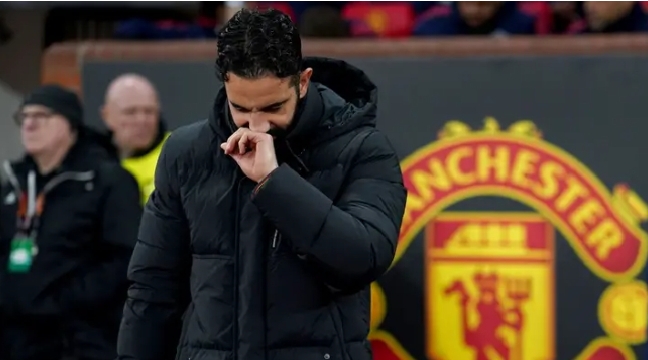
Why Over £100m Depends on Manchester United Winning the Europa League
As Manchester United prepare for a season-defining Europa League final against Tottenham Hotspur, the stakes could not be higher — not just in terms of silverware and pride, but in terms of financial ramifications that could shape the immediate future of the club. While lifting the Europa League trophy brings prestige, bragging rights, and a much-needed morale boost, the broader picture reveals that winning this one match could determine whether Manchester United gain or lose over £100 million in revenue, player strategy, and long-term planning.
Here’s an in-depth look at why this final is worth so much to the Red Devils, and how victory — or defeat — could shape everything from sponsorships and signings to wages and the club’s relationship with UEFA competitions.
—
1. Champions League Qualification — A £60-70m Boost
The most obvious and immediate financial benefit of winning the Europa League is automatic qualification for the UEFA Champions League group stages for the 2025/26 season. Qualification alone is worth tens of millions.
Breakdown of Champions League Earnings:
Group Stage Participation Fee: ~£15m
Coefficient and Market Pool Revenue: £20m–£25m (based on UEFA rankings and UK broadcasting rights)
Match Bonuses (Win: £2.4m / Draw: £800k): Estimated ~£10m
Knockout Stage Progression: Reaching the Round of 16 brings in an extra £9.5m
If United win and qualify, a minimum guaranteed income of £60-70 million could flow into the club through UEFA payments alone — with even more possible if they progress beyond the group stage.
By contrast, failing to win the final means no Champions League football, as United are outside the Premier League’s top four. That would force the club to spend another year in the less lucrative Europa League or, worse, miss out on Europe entirely if UEFA reshuffles berths.
—
2. Sponsorship Clauses and Bonus Triggers — £25m+ at Stake
Modern sponsorship deals are heavily performance-based, and Manchester United’s kit and commercial partnerships include Champions League-related clauses.
Adidas Kit Deal: The 10-year, £750m agreement with Adidas includes performance clauses. Missing the Champions League two years in a row triggers penalties that could reduce annual payments by up to 30% — approximately £20-25m loss for the 2025/26 cycle.
TeamViewer, DXC Technology, and others: United’s commercial deals often include bonuses for Champions League exposure due to higher viewership and branding value. These bonuses could add another £5-10m if United qualify.
Simply put, sponsors want visibility on Europe’s biggest stage. If United aren’t there, they pay less.
—
3. Transfer Market Budget: Win and Spend, Lose and Sell
With INEOS taking control of football operations and a managerial transition either underway or looming, United’s summer transfer strategy hinges on revenue certainty.
Victory Scenario:
Champions League funds unlock bigger budget
Top players are more likely to join if United are in the UCL
Amorim (or Ten Hag) can build a deeper squad, not just a patched one
Defeat Scenario:
United face FFP pressure
INEOS may be forced to sell players like Sancho, McTominay, or even Rashford
Reduced budget of ~£50m could prevent deals for key targets like Michael Olise or Jarrad Branthwaite
That means Champions League football adds not only cash, but leverage. It determines whether United can chase elite signings or bargain alternatives.
—
4. Player Contracts and Wage Flexibility
Many players have performance-related wage clauses, particularly tied to European competition.
Players like Bruno Fernandes and Casemiro reportedly have Champions League bonus clauses.
Failing to qualify would trigger wage reductions, creating friction or incentive for players to seek transfers.
It also weakens United’s negotiating power in renewing contracts or recruiting talent.
If United win and return to the UCL, they can stabilize the dressing room, retain top players, and offer market-rate contracts. A loss could lead to unrest or forced exits, particularly from players who view the Europa League as a step backward.
—
5. Youth Development and Pathway Investment
The Champions League isn’t just about senior stars — it affects United’s academy and youth development programs as well.
UEFA youth competitions like the UEFA Youth League mirror the senior team’s participation. If United return to the UCL, their U19s also compete at the highest level.
This exposure is key for talents like Kobbie Mainoo, Ethan Wheatley, and Shea Lacey, accelerating their development.
Youth League exposure also raises the market value of academy players, some of whom can be loaned or sold to fund future signings.
Without UCL qualification, United’s youth prospects are limited to domestic competitions, and the club may find it harder to attract top 16-year-old prospects from abroad.
—
6. Fan and Shareholder Confidence
Though harder to quantify, the intangible value of victory — for supporters, shareholders, and the broader brand — is crucial.
A Europa League trophy would restore pride in a season filled with disappointment and give fans hope.
It helps INEOS and the Glazers regain credibility after a chaotic managerial transition.
It boosts the club’s global profile — increasing merchandise sales, social media growth, and long-term sponsorship potential.
Conversely, a loss would continue the narrative of underachievement and may undermine Amorim’s first season before it even begins.
—
Final Thoughts: More Than a Trophy
For some clubs, a Europa League final is just another shot at silverware. For Manchester United, it’s a financial and symbolic crossroads.
Over £100 million hangs in the balance — from direct UEFA earnings to cascading effects across sponsorships, recruitment, wages, and youth development. This match could define not only the 2024/25 season, but the trajectory of the club’s next three to five years.
Victory means Champions League football, transfer power, commercial rewards, and a reinvigorated project under new leadership. Defeat means yet another rebuild constrained by revenue gaps, underwhelming player retention, and missed opportunities.
For Manchester United,
May’s Europa League final is more than a game — it’s an economic lifeline. And the pressure to deliver has never been greater.

Leave a Reply